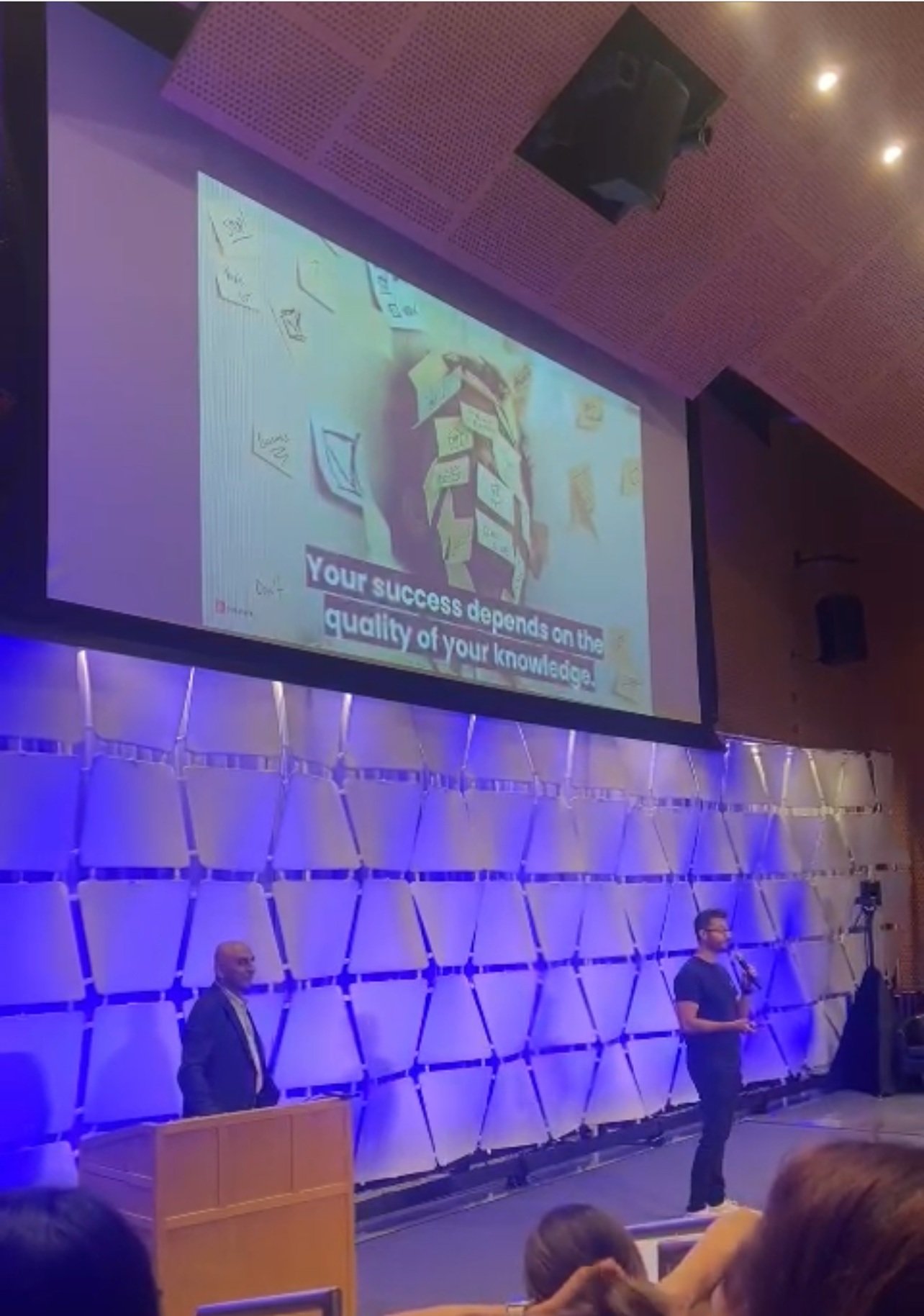AI Agents at MIT CSAIL & Imagination in Action Academics 2024
The Future of Work: How AI Agents Are Revolutionizing Media and Beyond
Imagination in Action: A Hub for AI Innovation
Founded by John Werner, Imagination in Action is a non-profit organization dedicated to sparking innovation by blending exponential technology with human creativity. Held at MIT's Stata Center on June 7, 2024, the event provided a platform for startups, industry leaders, and AI enthusiasts to connect, share ideas, and explore transformative collaborations. Attendees had the chance to hear from and connect with notable speakers like Dr. Alex Wissner-Gross and Yvonne Hao, discussing how AI will redefine our future and prepare Boston to lead the next AI revolution.
Event Highlights
Panel Discussions: One of the most anticipated sessions featured Daniela Rus, a renowned AI researcher and MIT professor, in conversation with will.i.am, a multi-talented musician, entrepreneur, and philanthropist. Their dialogue offered unique insights into the intersection of AI, creativity, and the future of technology.
Startup Alley: Innovative startups in the AI space showcased their ideas and connected with potential investors and collaborators. The morning pitch session and the networking session were particularly well-received.
Keynote Speakers: Inspiring talks from leading figures in AI highlighted groundbreaking ideas and the latest advancements in the field.
This event aimed to showcase the extraordinary contributions of CSAIL research groups and highlight their significant impacts.
Yvonne Hao, the Economic Development Secretary of Massachusetts, delivered a compelling presentation at the CSAIL+Imagination in Action AI Summit.
She emphasized the importance of public/private partnerships and highlighted Massachusetts' unique strategy in leveraging AI for economic development. Hao's vision underscores the state's commitment to embracing AI not as a fleeting trend but as a transformative force that will shape future generations.
“We are a $750 billion economy - we've led in so many different situations, so many different industries,” Hao stated, reinforcing the state’s leadership in innovation and technology. She elaborated on the collaborative efforts involving legislators, academia, and industry leaders to address major challenges through AI, emphasizing that Massachusetts is dedicated to proactive rather than reactive strategies.
Provable Software Systems: The Future of Reliable AI
At the same event, Professor Adam Chlipala introduced the concept of provable software systems, a groundbreaking approach to ensuring the reliability and security of AI applications. Chlipala's work focuses on using mathematical logic and cryptography to verify system functionality, which is crucial as AI systems are increasingly deployed in the physical world.
“Most people, when they hear ‘AI’, they think about machine learning or statistical methods,” Chlipala explained. “But there's an older tradition grounded in mathematical logic where we can have strong mathematical guarantees about software functionality.” This approach aims to make systems less vulnerable to bugs and security breaches, ensuring that AI tools perform their intended functions correctly.
Chlipala showcased prototypes like the “IoT light bulb” and a cryptographic library for a Lego garage, illustrating how these principles can be applied to real-world applications. By formalizing what ‘correct’ means, these systems can significantly reduce the risk of common security problems, making AI applications more robust and trustworthy.
The Future of AI in Boston: Innovation and Collaboration
The events in Boston underscored the city's potential to lead in AI innovation. Startup pitches at the Imagination in Action event showcased how AI can tackle significant human problems, such as misinformation, healthcare accessibility, and enterprise adoption of AI. These startups are solving technical challenges and driving societal change by democratizing technology and challenging the status quo.
Synthesizers and Actions Triggers are the future of applications
Agentic AI and agents that are specialized in a single task will communicate with each other to facilitate work and automate processes. While information continue to increase over-time on news, social media and academic journals, we will witness the profileferation of AI-generated content that accelerates the growth of information bubbles.
Our dependence on AI Agents can be worse off over-time, as we replace knowledge workers with Agentic AI, the overall net new knowledge creation decrease - since AI replicates the data that its fed..
A Look Ahead
The discussions at "Imagination in Action" showcased current innovations and glimpses into how AI will redefine our technological interactions and societal structures. This event was a clarion call to the possibilities of tomorrow—where AI not only enhances our current systems but redefines them for a smarter, more interconnected world.
“AI Agents will become the translators between ‘us’ and the ‘internet’, making every virtual communication facilitated by LLMs. Are we ready for this? If yes, how can we ever be sure there will never be hallucinations?”







